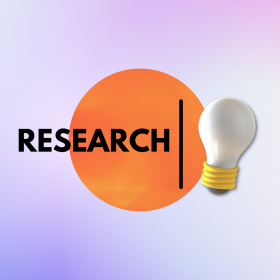
Abstract: Public health response and planning capabilities have historically been limited due to a lack of good quality data and human-centric, data-driven modeling tools. Such technologies are necessary for optimal decision support during public health emergencies, as well as planning for day-to-day operations. In this two-part talk, Ensheng Dong will delve into efforts to 1) collect and share high-quality real-time public health data related to the COVID-19 pandemic, and 2) implement the human-centric modeling which integrates his collected data with other large-scale novel datasets.
On January 22, 2020, as the COVID-19 pandemic emerged, Johns Hopkins University's Center for Systems Science and Engineering (CSSE) launched a pioneering real-time COVID-19 surveillance system. This platform, unveiled just after the first U.S. COVID-19 case was reported, offered detailed visualizations of COVID-19 epidemiological data, ranging from local county levels in the U.S. to national levels across every country reporting COVID-19 data. Its data, accessible via a GitHub repository and a geo-reference service, has been crucial in the global pandemic response, with nearly 4 billion page views and over 220 billion feature layer requests as of March 2023. Featured prominently in major news outlets such as the New York Times, CNN, and Washington Post, this dashboard has underscored the vital role of public health informatics. It has also highlighted significant gaps in the existing global public health data collection and sharing infrastructure. The effort also exemplified the importance of data accuracy, transparency, and equity for public health data collection and use. In this presentation I will discuss the dashboard's infrastructure, including its automated data collection, fusion logic, and anomaly detection systems, and discuss pressing challenges and solutions encountered in its real-time development.
The enhanced data quality and availability that came about during COVID-19 enabled new data-driven modeling tools to help understand and respond to the pandemic, and infectious disease risk more generally. In the second part of the presentation, Dong will discuss a detailed analysis of COVID-19 vaccination rates in the U.S., specifically a model designed to uncover the associations between vaccination uptake rates and various potential driving factors. Despite the proven efficacy and safety of FDA-approved vaccines, COVID-19 vaccination rates were relatively low in the U.S. Dong's data-driven study provides a high resolution, population-level statistical analysis at the county level, identifying key factors associated with low vaccine uptake. Findings indicate that political affiliation, as determined by the vote share for the Republican candidate in the 2020 presidential election, is the most significant factor influencing COVID-19 vaccination rates. Prior non-COVID-19 childhood vaccination coverage, and median household income among other demographic factors were also found to be associated with vaccination rates. Contrary to some earlier studies, Dong's analysis did not reveal a significant correlation between cable TV news viewership or Twitter misinformation and COVID-19 vaccine uptake. These analyses are crucial for designing targeted public health interventions and educational campaigns to increase vaccine acceptance, offering human-centered lessons for future public health emergencies.
Bio: Ensheng Dong is a PhD candidate and Louis M. Brown Engineering Fellow from the Center for Systems Science and Engineering (CSSE), Department of Civil and Systems Engineering at Johns Hopkins University. He is also a member of the Infectious Disease Dynamics (IDD) group at the JHU Bloomberg School of Public Health (SPH). Ensheng Dong is interested in interdisciplinary research, including network science, health informatics, spatial analysis, and information visualization. His recent work includes evaluating the risk of measles in the U.S., predicting dengue outbreaks in Sri Lanka, building and maintaining the Johns Hopkins CSSE COVID-19 Dashboard, forecasting pandemic development with deep learning, analyzing vaccine hesitancy in the U.S., and modeling misinformation on social media. Ensheng Dong has been featured by Wall Street Journal, NPR, CNN, TIME, Nature Index, Bloomberg, and Financial Times. His achievements were awarded by Research!America, TIME magazine’s Best Inventions of 2020, the World Federation of Public Health Associations, Environmental Systems Research Institute (ESRI), Route Fifty Navigator, and Hodson Foundation.

